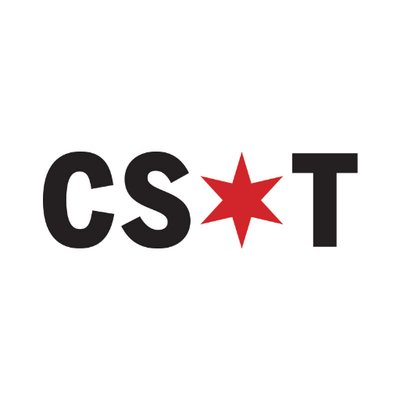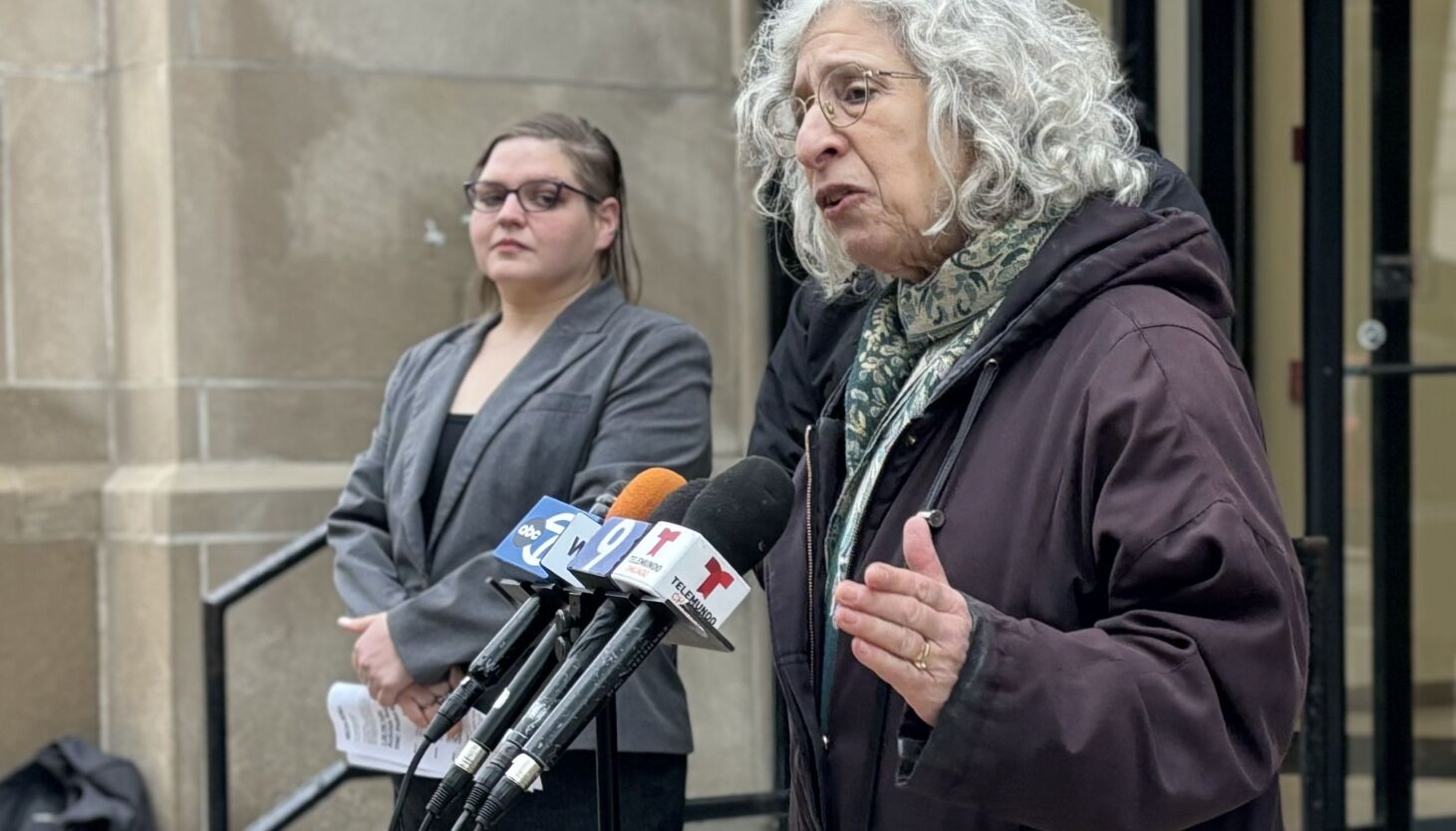



LGBTQ+ and abortion rights organizers held a news conference Tuesday following an appeal hearing regarding the rejection of their permit application to march on the Democratic National Convention in Chicago in August.
The groups Bodies Outside of Unjust Laws: Coalition for Reproductive Justice and LGBTQ+ Liberation applied for a permit at the beginning of January to march at Jane M. Byrne Plaza, previously known as Water Tower Park, on August 18, the day before the convention starts. The city rejected the permit.
“Today at an administrative hearing, the city presented a case showing that they are not certain of their personnel staffing availability on that day,” said Joe DiCola, an attorney representing BOUL. “They did not base their case on an empirical assessment of the resources that they’ll have available. And they in fact spoke negatively about the impact that the march would have.”
The administrative law judge said a decision would be released this week.
The city is required to offer an alternative route in their permit denial notice. This alternate route is required to have “comparable public visibility, and a similar route, location and date to that of the proposed public assembly,” according to the city’s Municipal Code .
The difference in public visibility between the original route and the alternative is where organizers take issue. The alternative route takes the march through Grant Park, which organizers say is drastically different in terms of visibility.
“It is obscene for the city to be treating us as though we are unruly children who are unfit to handle the responsibility of a large-scale march downtown, when we as organizers have collectively decades upon decades upon decades in experience,” said Kristi Keorkunian-Rivers, a member of Bodies Outside of Unjust Laws and co-founder of the Chicago chapter of Stop Trans Genocide. “Relegating our route to an afterthought parklands march, where the foot traffic pales in comparison, is frankly embarrassing.”
The convention, to run August 19-22, is expected to draw up to 50,000 visitors to Chicago.
The city did not provide comment on the appeal, citing ongoing litigation.
BOUL and the Poor People’s Army are the only two groups that have filed for march permits during the DNC. Both permit requests were denied by the city.
Andy Thayer, a member of Bodies Outside of Unjust Laws and a Gay Liberation Network co-founder, said the rejection letters the groups received were “almost word-for-word” identical, even with drastically different routes and different march dates.
The city has a history of attempting to limit political marches to within Grant Park. In 2012, Thayer filed a march permit ahead of that year’s NATO conference, which was similarly denied and provided with an alternative route. His group won that appeal.
At the news conference, speakers emphasized the importance of getting DNC delegates to hear their message.
“In my experience, when we’ve had Democratic administrations, we have gotten at most the bare minimum that they have promised. And as we see increasing attacks on transgender people, on the rights of people to decide what happens with their own bodies in terms of abortion and reproductive justice in general, the bare minimum is not enough,” Thayer said. “It’s up to us here in Chicago and other so-called blue states to say, ‘No, that’s not enough.’”
“We want to defend those laws which still protect us in states like Illinois, and we want to extend them throughout the country so it’s accessible to everyone, including the American South, including people without health insurance, everyone,” said Linda Loew, a Bodies Outside of Unjust Laws member and Chicago for Abortion Rights co-founder.
Thayer said the group plans on marching at Jane M. Byrne Plaza on Sunday, Aug. 18 at 5 p.m., whether or not their permit gets approved.
“We will not allow our issues to be used for mere electoral advantage. We are demanding National LGBTQ rights legislation. We’re demanding national reproductive rights legislation, including full access to abortion in all 50 states. Given what’s happened with the country over the last year and a half, that’s the minimum that we demand,” Thayer said.
